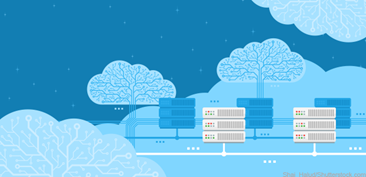If you’ve looked into the process of cloud migration or cloud optimization, you’ve probably come across the term “workload.” The term may be attached to a descriptor, like a database workload, transactional workloads, or batch workloads. In this blog, I’ll work to demystify the commonly used phrase.
Cloud Computing Basics
As a refresher, there are three types of cloud computing. Bear with me here; this breakdown will help add context for our other term.
Cloud Computing Types
- Public Cloud
- Private Cloud
- Hybrid Cloud
According to Microsoft Azure, “Simply put, cloud computing is the delivery of computing services – including servers, storage, databases, networking, software, analytics, and intelligence – over the Internet (“the cloud”) to offer faster innovation, flexible resources, and economies of scale.”
Within a cloud environment, there are various servers with applications, operating systems, etc., that support an enterprise. The types of applications that can be hosted in an enterprise environment depend on the workload.

Let’s break it down to the root definition of workload. According to Merriam-Webster, a workload is “the amount of work performed or capable of being performed (as by a mechanical device) usually within a specific period.”
In the context of cloud computing, a workload is the computing requirement to ensure the IT system is running effectively. Depending on the computing that you’re doing, however, the type of workload will change.
Workload Contents
When provisioning a data workload, it’s crucial to have a sound migration plan for your hybrid or public cloud model. A plan helps guide the individual requirements of a workload, which includes three things:
- Processing
- Storage
- Networking
When problems arise, a common mistake is increasing storage space when processing or networking is the issue. But more doesn’t always mean better. Having these three elements work in tandem, along with a unified migration plan, can help your business avoid unnecessary resources.
Learn how to embrace the cloud with confidence with CCG. Read our Cloud Migration overview here or connect with a consultant at info@ccganalytics.com.
Written by CCG, an organization in Tampa, Florida, that helps companies become more insights-driven, solve complex challenges and accelerate growth through industry-specific data and analytics solutions.